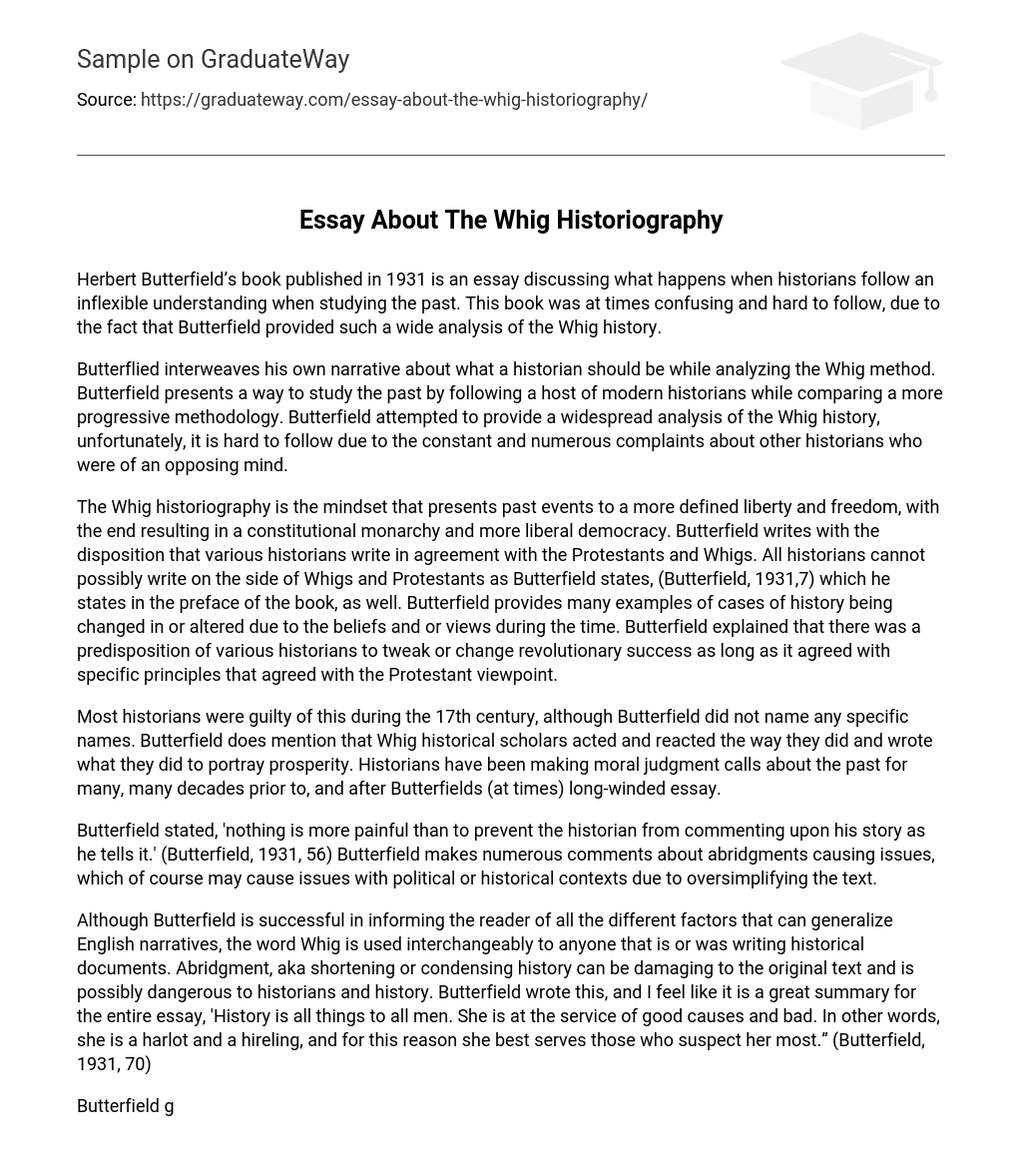Herbert Butterfield’s book published in 1931 is an essay discussing what happens when historians follow an inflexible understanding when studying the past. This book was at times confusing and hard to follow, due to the fact that Butterfield provided such a wide analysis of the Whig history.
Butterflied interweaves his own narrative about what a historian should be while analyzing the Whig method. Butterfield presents a way to study the past by following a host of modern historians while comparing a more progressive methodology. Butterfield attempted to provide a widespread analysis of the Whig history, unfortunately, it is hard to follow due to the constant and numerous complaints about other historians who were of an opposing mind.
The Whig historiography is the mindset that presents past events to a more defined liberty and freedom, with the end resulting in a constitutional monarchy and more liberal democracy. Butterfield writes with the disposition that various historians write in agreement with the Protestants and Whigs. All historians cannot possibly write on the side of Whigs and Protestants as Butterfield states, (Butterfield, 1931,7) which he states in the preface of the book, as well. Butterfield provides many examples of cases of history being changed in or altered due to the beliefs and or views during the time. Butterfield explained that there was a predisposition of various historians to tweak or change revolutionary success as long as it agreed with specific principles that agreed with the Protestant viewpoint.
Most historians were guilty of this during the 17th century, although Butterfield did not name any specific names. Butterfield does mention that Whig historical scholars acted and reacted the way they did and wrote what they did to portray prosperity. Historians have been making moral judgment calls about the past for many, many decades prior to, and after Butterfields (at times) long-winded essay.
Butterfield stated, ‘nothing is more painful than to prevent the historian from commenting upon his story as he tells it.’ (Butterfield, 1931, 56) Butterfield makes numerous comments about abridgments causing issues, which of course may cause issues with political or historical contexts due to oversimplifying the text.
Although Butterfield is successful in informing the reader of all the different factors that can generalize English narratives, the word Whig is used interchangeably to anyone that is or was writing historical documents. Abridgment, aka shortening or condensing history can be damaging to the original text and is possibly dangerous to historians and history. Butterfield wrote this, and I feel like it is a great summary for the entire essay, ‘History is all things to all men. She is at the service of good causes and bad. In other words, she is a harlot and a hireling, and for this reason she best serves those who suspect her most.” (Butterfield, 1931, 70)
Butterfield genuinely wanted a tried and true method when studying the past by giving us an important framework to support not over-generalizing history. There is no definite definition of the word ‘Whig’ in Butterfield’s essay, however, it is an important aspect in judging historical resources based strictly on their values in the present.





